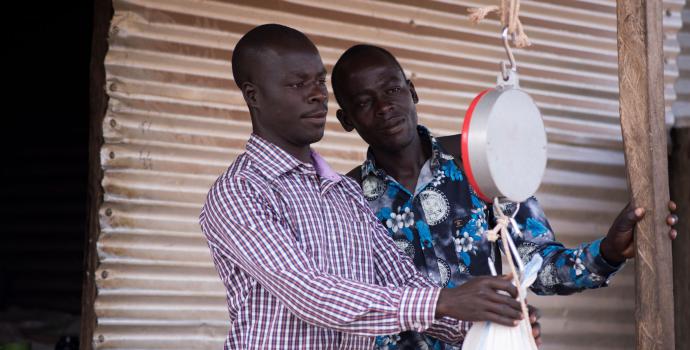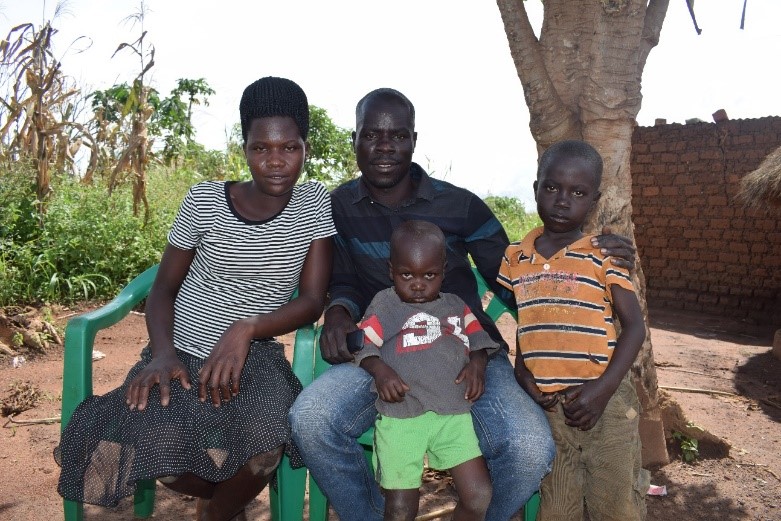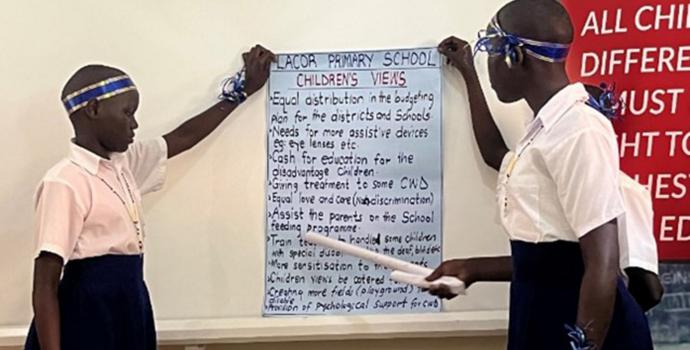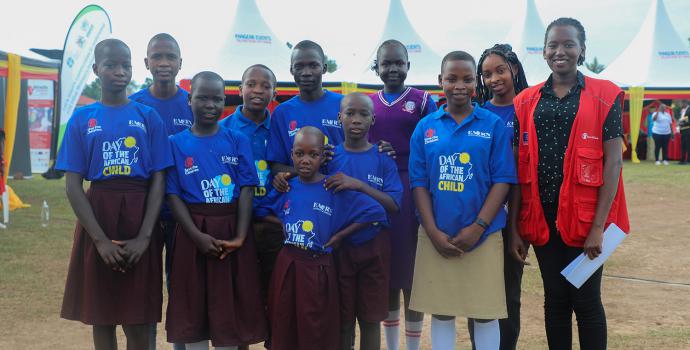Empowering youth to sustain themselves

23-year-old Wilfred is beaming with pride. He’s just returned from taking his four-year-old son, Joshua, to enroll in his very first day of nursery school.
“It’s expensive,” he says. “The fees are 130,000 shillings (about €32) every term, but parents also have to provide the school with things like maize, sugar, books, toilet paper…
“I can only afford it because of the profits I get from my business.”
He set up the business a few years ago, with support from Save the Children’s Youth Empowerment Programme run in partnership with Bulgari. The programme provides young people with training in vocational and business skills and helps them set up savings groups.
Wilfred got together with 15 other local youth and formed the Dyere Tek Village Savings and Loan Association (VSLA). He saved 400,000 shillings (about €99) to start a small business of his own. “I started buying and selling cereals… rice, maize, groundnuts,” he says.
As he gradually saved more, Wilfred wanted to expand and took a big next step.
He borrowed a large amount, 2.7 million shillings (about €671), and used it to buy a maize milling machine.
“I decided to open a mill,” he says. “People used to have to take their produce to the town (Gulu, about 40kms away) for grinding. I thought it would be better if I bring it closer to them. I also knew that if could process my own produce myself I could sell it for a much higher price.”
Within a year business was booming and he paid back his entire loan. So in 2018 he decided to use his savings along with another even bigger loan to buy a milling machine for rice.
The decision has paid off. Today he makes about 150,000 shillings (about €37) a day from the various arms of the business. The milling machines are particularly profitable. He’s also taken ‘life skills’ training with Save the Children, which has helped him with things like customer care. “I know how to look after my regular customers so they keep coming back!” he laughs.
Wilfred didn’t get to finish school when he was younger. His mother, Janet, remembers that her son was devastated at not being able to continue his studies, but the family simply could not afford it. “We decided that he had to come home instead and do the farm work that could feed us,” she recalls. “I was the only breadwinner in the house and could no longer sacrifice much to pay the school fees.”
Today Wilfred is able to employ four labourers to work on his mother’s farm and grow rice, beans, sorghum and groundnuts to feed the extended family. He’s bought another 20 acres of land to grow rice for milling and sale. He foots most of the family’s medical bills and pays for some of his siblings’ children to attend school.

Above: Wilfred with his family
Wilfred himself is back studying for a diploma in social work and social administration. He says it comes in useful for day-to-day work as well: “Learning how to deal with people and handle different personalities helps me with my business!”
He recently bought another plot of land near the market, where his wife is going to set up a new shop and increase sales. Next he wants to upgrade his generator. Electricity is unreliable and it’s too expensive to connect to the regular mains supply. “Sometimes the power goes off for up to a week. The generator is much more stable,” he says. But the power from his current generator is only enough to grind 80 bags of maize and rice a day. He wants to upgrade so he can handle up to 200 bags a day, which could potentially more than double his profits.
Then he says he’ll be able to build a big new house where his family and his mother can live happily.
He’s dreaming big, and he’s well on the path to making those dreams a reality.




